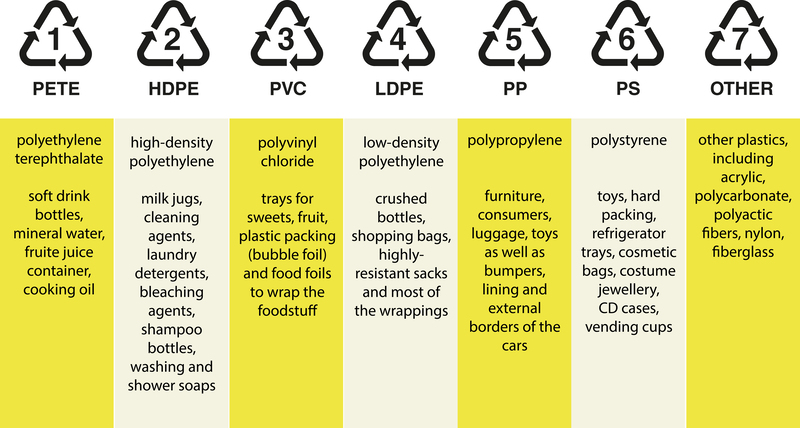Clearing Commercial Waste with a Green Approach
Posted on 03/02/2025
In today's world, environmental sustainability is more important than ever. As businesses expand and industries grow, the amount of commercial waste also increases. This begs the question: how can businesses manage and clear commercial waste efficiently while minimizing their environmental impact? The answer lies in adopting a green approach to waste management. This article delves into various strategies for clearing commercial waste with an eco-friendly mindset.
Understanding Commercial Waste
Commercial waste encompasses all forms of waste generated by businesses and industries. This includes office waste, packaging materials, manufacturing by-products, and construction debris among others. The traditional methods of waste disposal, such as landfilling and incineration, contribute significantly to environmental degradation through pollution and greenhouse gas emissions.

The Green Approach to Waste Management
1. Reduce, Reuse, Recycle
One of the fundamental principles of a green approach to waste management is the 3Rs: Reduce, Reuse, and Recycle.
- Reduce: Businesses should focus on reducing the amount of waste they produce. This can be achieved through better inventory management, minimizing packaging materials, and opting for digital rather than paper-based systems.
- Reuse: Items that are still functional should be reused. This could mean repurposing old office furniture or reusing containers and packaging materials.
- Recycle: Recycling is crucial in reducing the amount of waste that ends up in landfills. Businesses should implement robust recycling programs that segregate recyclable materials from non-recyclable ones.
2. Implementing Waste Segregation
Proper waste segregation at the source is vital for efficient waste management. Businesses should have separate bins for different types of waste such as paper, plastics, metals, organic waste, and electronic waste. This not only facilitates recycling but also ensures that hazardous waste is disposed of safely.
3. Composting Organic Waste
Organic waste, such as food scraps and yard clippings, can be composted rather than sent to landfills. Composting turns organic waste into nutrient-rich compost that can be used to enrich soil in gardens and green spaces around the business premises. This reduces the methane emissions that would be produced if the organic waste were to decompose anaerobically in landfills.
4. Partnering with Green Waste Management Companies
Businesses can partner with waste management companies that prioritize eco-friendly practices. These companies often offer services such as recycling, composting, and safe disposal of hazardous waste. By outsourcing waste management to green companies, businesses can ensure that their waste is handled in an environmentally responsible manner.
5. Adopting Tech Solutions
Technology can play a significant role in green waste management. Businesses can use IoT (Internet of Things) devices to monitor waste levels and predict when waste collection is needed, thereby optimizing collection routes and reducing fuel consumption. Additionally, AI (Artificial Intelligence) can be used to sort and recycle waste more efficiently.
6. Educating Employees
Employee education and engagement are critical in implementing a successful green waste management program. Regular training sessions and workshops can be conducted to educate employees on the importance of waste segregation, recycling, and other green practices. Encouraging employees to participate in sustainability initiatives, such as waste reduction challenges, can also foster a culture of environmental responsibility within the organization.
Pros and Cons
Pros
- Environmental Benefits: Reduces pollution, lowers greenhouse gas emissions, and conserves natural resources.
- Cost Savings: Efficient waste management practices can lead to cost savings through reduced disposal fees and resource conservation.
- Positive Brand Image: Adopting green practices enhances the business's reputation and demonstrates corporate social responsibility.
Cons
- Initial Costs: Implementing green waste management systems may require initial investments in technology and training.
- Employee Resistance: Some employees may resist changes to established procedures or require time to adapt to new practices.
- Ongoing Management: Effective waste management requires continuous monitoring and management, which can be resource-intensive.
Tips for Effective Green Waste Management
1. Conduct a Waste Audit: Understand the types and quantities of waste your business generates to identify areas for improvement.
2. Set Clear Goals: Establish measurable waste reduction goals and track progress.
3. Choose Sustainable Suppliers: Partner with suppliers who prioritize sustainable practices.
4. Incentivize Employee Participation: Offer incentives or rewards for employees who actively participate in waste reduction initiatives.
5. Regularly Review and Update Practices: Continuously evaluate and improve waste management strategies based on the latest technologies and industry best practices.

Takeaways
- Embracing a green approach to waste management is essential for reducing the environmental impact of commercial waste.
- The 3Rs (Reduce, Reuse, Recycle) along with proper waste segregation, composting, and partnering with green waste management companies are key strategies.
- Technology and employee education are vital components in implementing effective green waste management.
- Despite some challenges, the long-term benefits of adopting green practices outweigh the initial costs and efforts.
Conclusion
Clearing commercial waste with a green approach is not only an environmental responsibility but also a smart business strategy. By reducing waste, reusing materials, and recycling, businesses can significantly diminish their environmental footprint while potentially lowering costs and enhancing their corporate image. As we move towards a more sustainable future, the importance of green waste management practices cannot be overstated. Implementing these strategies requires commitment and continuous effort, but the benefits to both the environment and the business are well worth it.
In conclusion, adopting a green approach to commercial waste management is a win-win situation that contributes to the sustainability of our planet while promoting a positive corporate ethos.
Latest Posts
Resource Efficiency with Polystyrene Recycling
Essential Hacks for a Tidy Home




